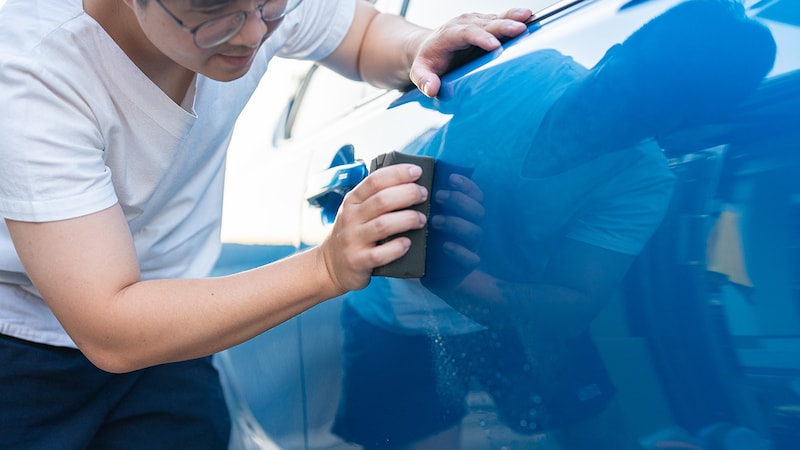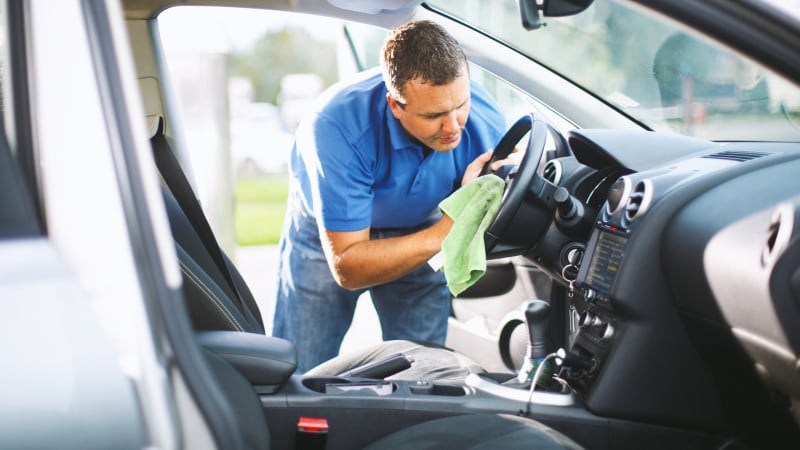Car flipping: What is it and is it worth it?

Quick insights
- Car flipping involves buying a used car, improving it and then selling it for a profit.
- Some states have regulations around how many cars you can flip and sell without a dealer’s license.
- Whether or not car flipping is worth it depends on your financial and personal goals.
In the same way someone might flip a house to earn a profit, you can flip a car by buying a used car, increasing its value through material improvements and then selling it at a higher price. This process is called car flipping, and below we’ll get into more details about what this is and how it works.
What is car flipping?
Car flipping is typically done privately between individuals and not through an auto dealership. It involves buying a used car at a lower price, increasing its market value (such as through repairs and enhancements) then selling the car at a higher price to make a profit. Some of these repairs could be functional, such as fixing brakes or transmission, or aesthetic, like refreshing paint and fixing dents.
Car flipping may be someone’s side hustle or a passion project; when done correctly, it can be a helpful way to earn some extra income.
Car flipping vs. car reselling
Note that car flipping is different from selling your used car—the latter is typically motivated by the need to get rid of a car you already own and does not necessarily require making enhancements or repairs. Reselling your car may help cover the cost of buying a new car, but it is not intended to make a profit.
Car flipping involves buying a car, improving it and then reselling it for a profit. Car reselling, on the other hand, is just selling a car you already own.
Is it legal to flip a car?
Yes, it is legal to flip cars, but each state has its own rules and regulations around car flipping. For example, there may be a maximum number of cars you can flip without having a dealer’s license. It can be helpful to check your state’s specific regulations and Department of Motor Vehicles (DMV) to make sure you are following the law and avoid any penalties.
Pros and cons of flipping cars
Pros of car flipping include:
- The potential to make money and earn a profit
- Flexibility and independence compared to working a regular 9 to 5 job
- Ability to pursue a passion project
Cons of car flipping include:
- State regulations may limit how much you can sell without a dealer’s license
- Flipping a car is considered work and it can take time and patience to see a profit
- You may need to pay for ads and improvements/repairs to a vehicle.
- Potential for scammers
- You will need to have extensive knowledge of the used car market and how much you should invest in improvements/repairs.
Financial implications
If you aren’t planning to start a business or get a dealer’s license, flipping a few cars may not be as big of a commitment. You will need to keep track of your expenses and profit for tax purposes, however.
If you decide to start your own business, you will need to register your business, obtain a dealer’s license and make sure you are budgeting appropriately so that you are able to make a profit.
Is car flipping worth it?
Depending on what your financial and personal goals are, car flipping may or may not be worth it. To help you decide, consider the following:
- Car flipping involves commitment—do you have the time and money to dedicate to research, ad placement and repairs?
- You could make additional income if you handle car flipping wisely, so you may want to consider if the time and energy is worth the profit you could make.
- You may need to acquire a car dealer’s license depending on which state you’re located in and how many cars you’re planning to flip.
- Car flipping is just one form of side hustle—if the priority is to make extra income, there may be other gigs that could better fit your current lifestyle, skills and interests.
Conclusion
Flipping cars takes skill, time, patience and an understanding of the car market. If you’re motivated to make a profit, car flipping can be a fun side gig if you know what you’re doing and following the proper regulations. Whether you decide you want to flip a car or resell your current vehicle, remember to weigh the pros and cons, consider your options and abide by your state laws.



